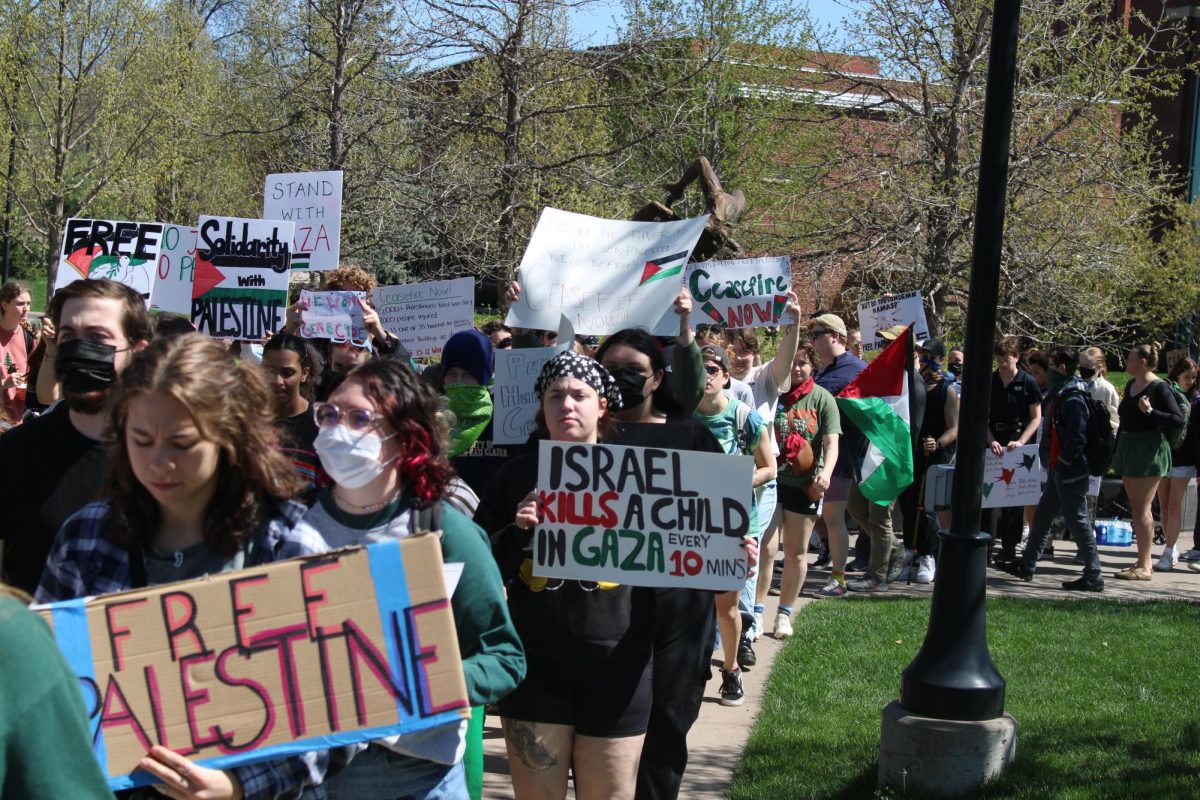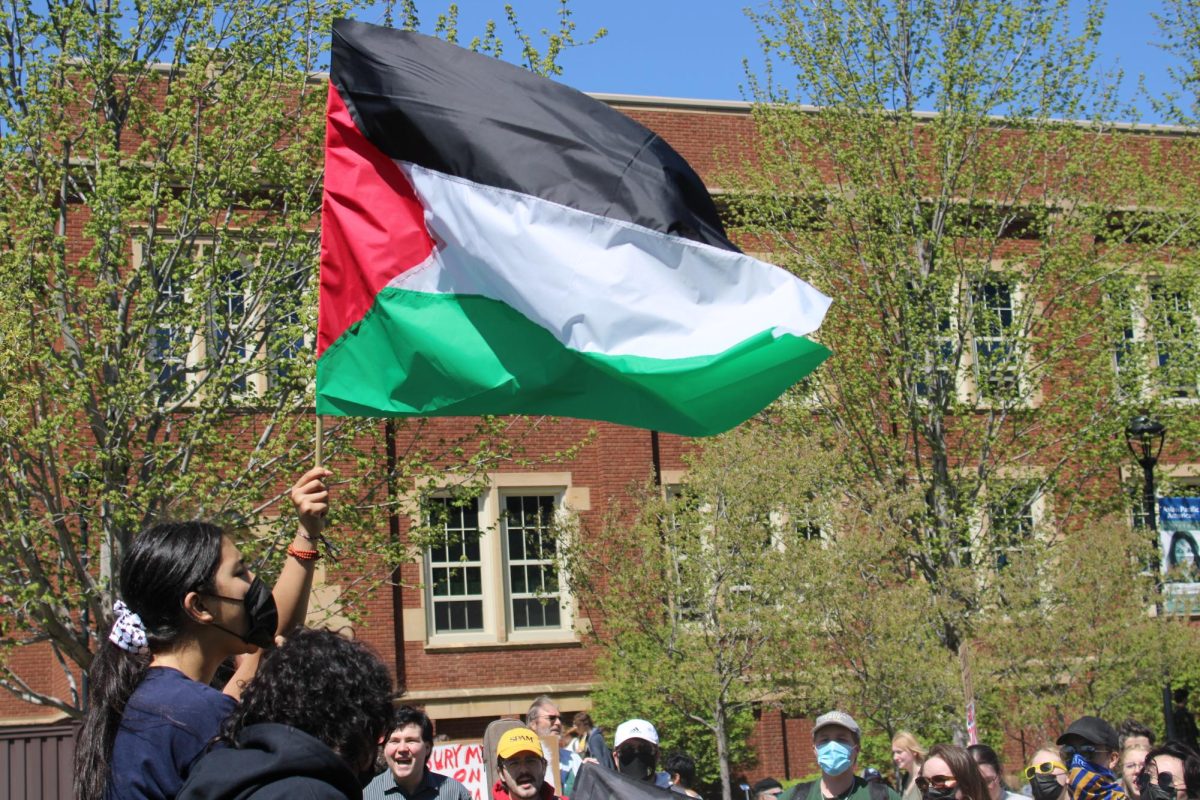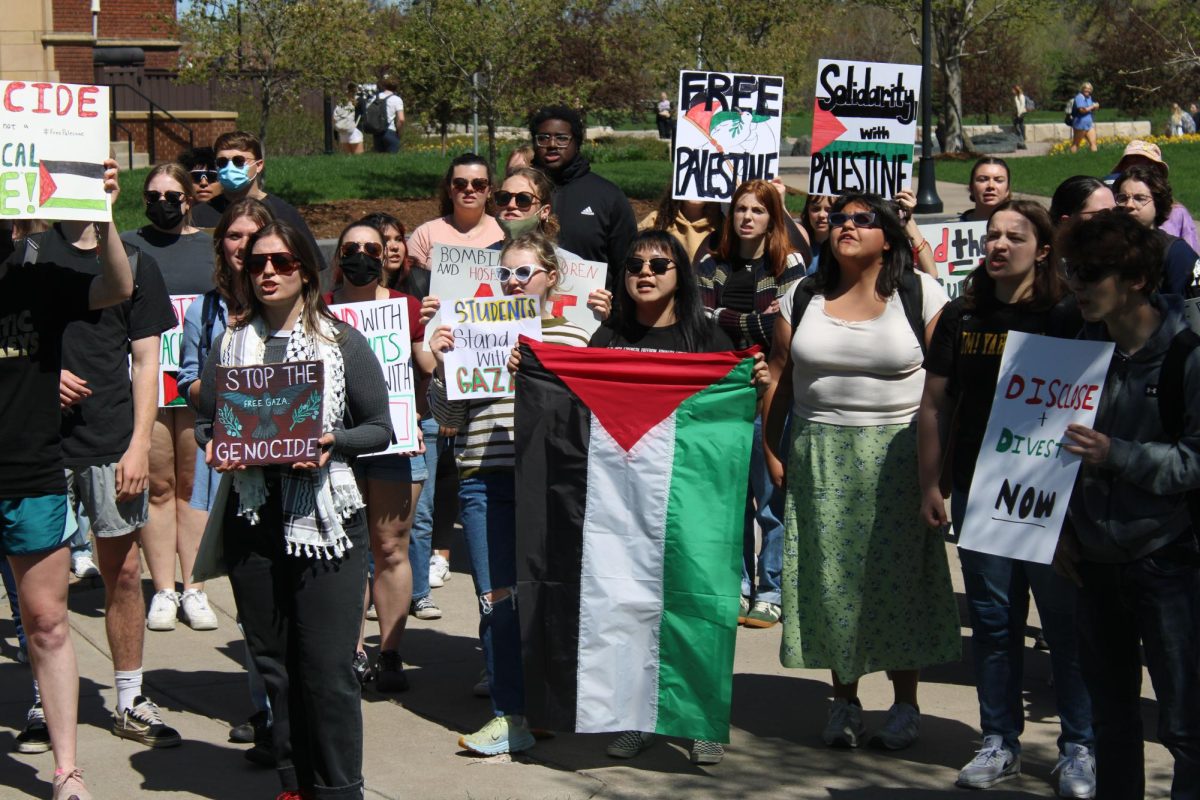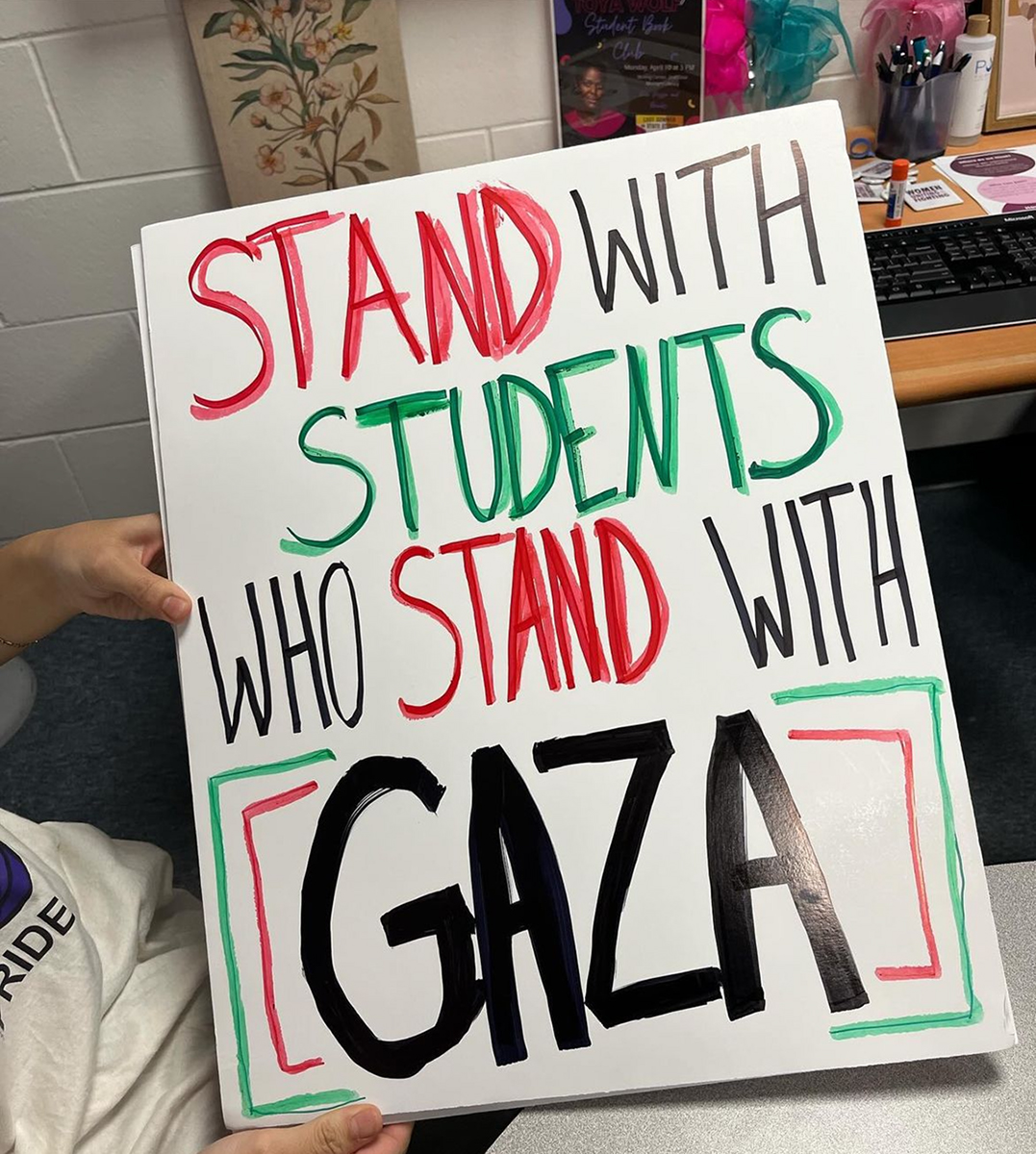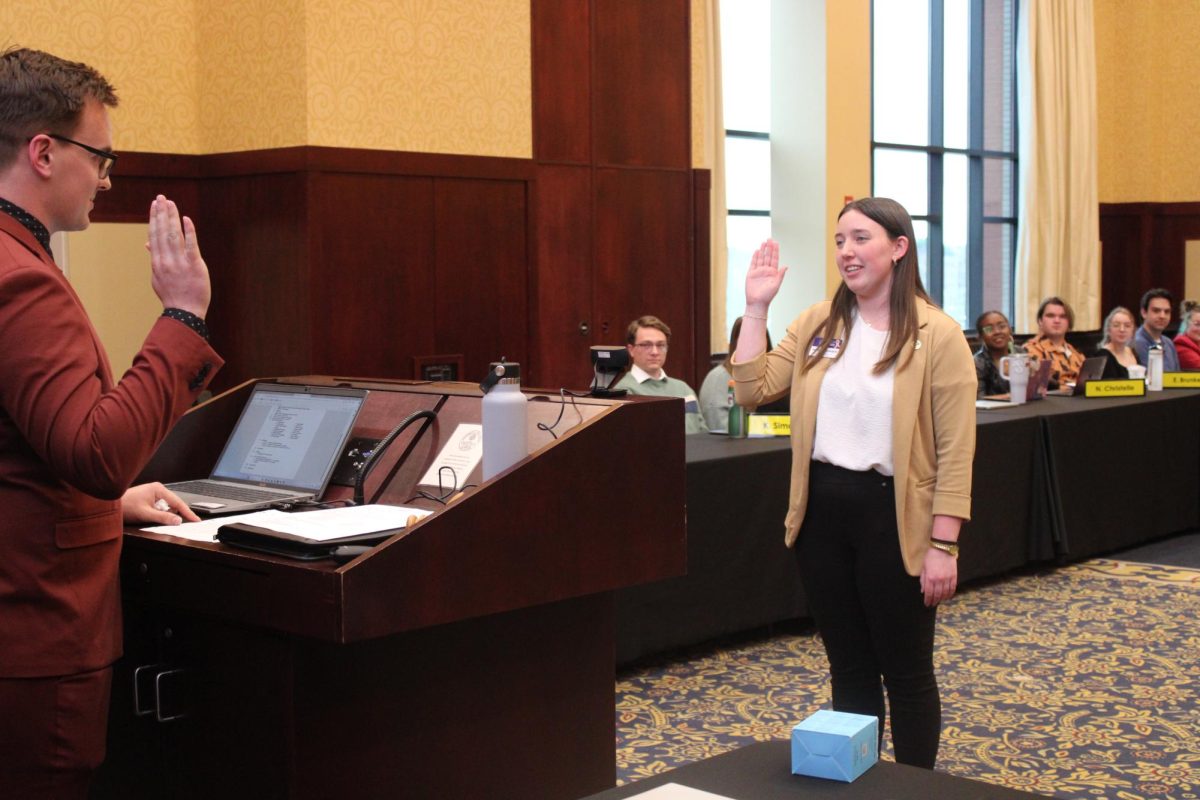In a media era of embedded reporters and 24-hour-a-day war coverage, 80 percent of UW-Eau Claire students surveyed say they watch less than an hour a day of TV news on the battle in Iraq.
The Spectator asked 50 students from a political science class and the upper campus area Tuesday about their viewing habits on war coverage. Of those students, 40 of them said they watch less than an hour a day of TV news on the war in Iraq.
Fifteen of those 40 students said they watch 10 minutes or less a day, and three students said they haven’t been watching the war updates at all.
One student said he watches at least two hours of war news on TV a day. Nine respondents, 18 percent, said they watch about one or two hours.
Freshman Lance Tangen said he doesn’t trust the news sources so he chooses not to watch the war coverage.
“I don’t know, truthfully, what’s going on over there,” he said. “So I don’t know what’s truly being represented and I’m just sick of hearing about it.”
Freshman Celeste Potvin said she tries not to watch too much of the coverage because it makes her mad.
“I think a lot of stations are using the war as a form of entertainment, and it’s just not right,” she said.
Many students in the survey said they would watch news on the war against Saddam Hussein’s regime more if they had extra time.
“In the beginning, I would watch it for probably an hour a day, but lately I just haven’t had the time,” freshman Drew Missureli said.
The Spectator also asked students’ views on the war and where they stood on it. Out of the 50 students surveyed, 46 percent of them said they support the war, 20 percent disapprove of the war and 34 percent are undecided.
Tangen sides with the undecided group.
“I’m ‘pran-war’- part ‘pro’ and part ‘anti,’ ” Tangen said.
When it comes to the channel students watch when they tune into the war on Iraq, CNN was the most-watched station. Only five of the 50 students said they watched a news station other than CNN.
The amount and extent of coverage created controversy among those questioned.
Junior Jo Ryan said she believes there shouldn’t be so much war coverage.
“Simply because we have newer technologies that enable the broadcast news coverage to be updated quickly doesn’t mean coverage needs to be nearly constant,” she said.
Sophomore Colin Wanke shared a similar opinion.
“If I hear any more about (the war), my head’s going to explode,” he said.
Junior Brandon Thorsness said he thinks the public is being over-saturated with news from Iraq, “especially with the amount of repeated news stories.”
Freshman Stacy Beles, however, said she thinks there’s just enough coverage on what is happening overseas, but too much on the families of troops.
“I hate watching the wives and families being interviewed on television,” she said. “It’s just wrong.”
Freshman Mindy Earp agreed. She said it is a good thing that the network stations are broadcasting as usual and only interrupting with breaking news.
As for the reporters who are covering the war, many students believe they are brave individuals just fighting to give viewers more information. Others said they believe they’re causing more harm than good.
Gibson said she thinks the journalists covering the war only disclose the U.S. troops’ war positions, thus, helping the Iraqis.
“I think that the journalists, in some cases, are only helping Saddam’s army,” she said. “They sit in one spot and say they are heading north and one minute later say that they can’t report on which direction they are heading.”
Gibson said that’s probably why coalition troops are getting ambushed.
“(Iraqis) recognize their own country (on TV) and know where our troops are,” she said.
Sophomore Timothy Hoel said he believes the journalists are going too far in covering the war.
“It all seems too glorified,” he said. “It’s become a big spectacle.”
Thorsness said he thinks there will be many issues surrounding the media’s war coverage at its conclusion. There are a few journalists, he said, who have compromised the integrity of the operations, including FOX News reporter Geraldo Rivera.
“I also feel that many of (the journalists) are putting their own anti-war slants into their analysis,” he said, “which only complicates the efforts of freeing the Iraqi population.”
Ryan said, however, that she thinks the journalists are brave for putting their lives at risk out on the battlefields of Iraq.
“They are not compromising objectivity,” she said. “They are simply performing hands-on journalism and providing the public with an aspect of the war – updated activity and location of the troops and front line action – that would, otherwise, possibly be overlooked in war coverage.”

